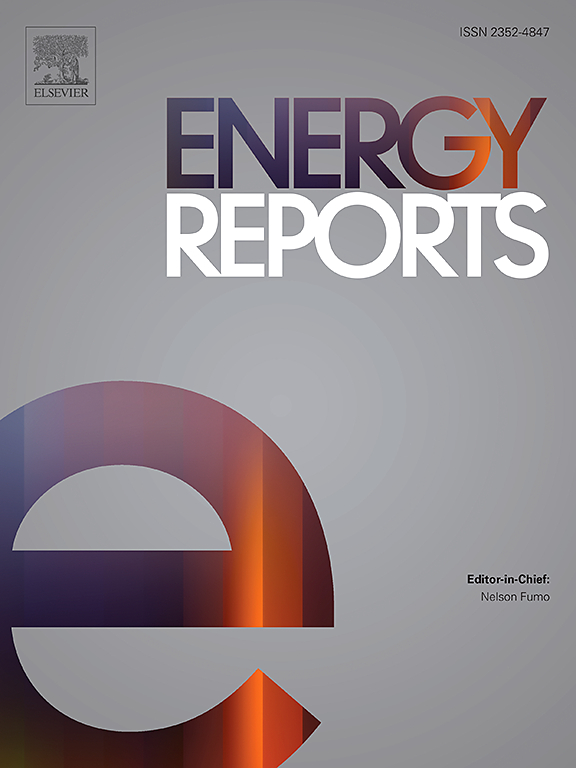平衡海上混合可再生能源系统的成本效益和可持续性:以帕劳河为例
IF 5.1
3区 工程技术
Q2 ENERGY & FUELS
引用次数: 0
摘要
日益增加的环境问题和关于碳排放的法规要求发展经济上可行和可持续的可再生能源系统。在此背景下,全面评估碳税(CT)情景下的太阳能光伏混合能源系统至关重要。本研究对比分析了碳税对并网和离网系统配置的成本效益、可持续性和经济影响。具体来说,详细研究了CT对并网系统架构成本的影响,并给出了各种CT的成本降低率。通过比较不同配置的技术性能和环境效益,确定最优规模策略,以平衡成本和碳排放。结果表明,连续油管在并网系统中具有成本优势,可将系统总成本降低约15 - 22% %。此外,混合动力系统在环境可持续性方面有显著改善。这些发现清楚地强调了CT政策在可再生能源整合以及混合能源系统的经济和环境效益方面的关键作用。本文章由计算机程序翻译,如有差异,请以英文原文为准。
Balancing cost-efficiency and sustainability in offshore hybrid renewable energy systems: A case study of Palau River
Increasing environmental concerns and regulations on carbon emissions necessitate the development of economically viable and sustainable renewable energy systems. In this context, comprehensively evaluating solar PV-based hybrid energy systems under carbon tax (CT) scenarios is critically important. This study comparatively analyzes the cost-effectiveness, sustainability, and economic impacts of carbon taxation on both grid-connected and off-grid system configurations. Specifically, the effects of a CT on the costs of grid-connected system architectures are examined in detail, and cost reduction rates at various CTs are presented. By comparing different configurations in terms of technical performance and environmental benefits, optimal sizing strategies are determined to balance cost and carbon emissions. The results indicate that CT implementation provides a cost advantage in grid-connected systems, leading to a reduction in total system costs by approximately 15–22 %. Moreover, hybrid systems demonstrate significant improvements in environmental sustainability. These findings clearly highlight a critical role of CT policies in renewable energy integration and the economic and environmental benefits of hybrid energy systems.
求助全文
通过发布文献求助,成功后即可免费获取论文全文。
去求助
来源期刊

Energy Reports
Energy-General Energy
CiteScore
8.20
自引率
13.50%
发文量
2608
审稿时长
38 days
期刊介绍:
Energy Reports is a new online multidisciplinary open access journal which focuses on publishing new research in the area of Energy with a rapid review and publication time. Energy Reports will be open to direct submissions and also to submissions from other Elsevier Energy journals, whose Editors have determined that Energy Reports would be a better fit.
 求助内容:
求助内容: 应助结果提醒方式:
应助结果提醒方式:


